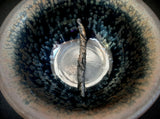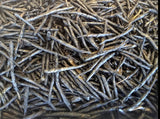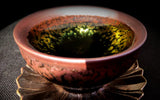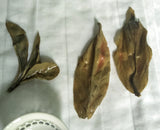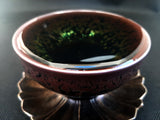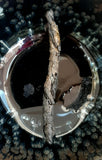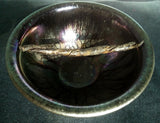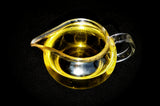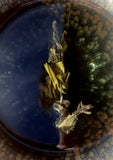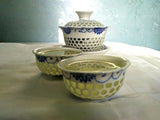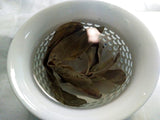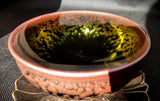This herbal tisane is often called Yi Ye Cha, or "One Leaf Tea" in Chinese. This name can refer to two different tisanes from different parts of China. The more precise name of this particular One Leaf Tea is Kuding. This name, meaning "Bitter Nail," is a reference both to the flavor and appearance of this particular tisane. Several leaves of this plant are rolled together to create what looks a bit like a long, dark green nail (the hammer kind, not the finger kind). When brewing, a single one of these "nails" is used. This form, along with its characteristically bitter flavor, give this tisane its name.
The flavor of this tea is rich, vegetal, bitter, and sweet, with a buttery texture that coats the mouth and throat. It contains no caffeine, so is a perfect choice for those who are caffeine-sensitive. Despite this lack of caffeine, it is quite refreshing.
From a Chinese medicine perspective, it clears wind-heat, resolves toxicity, promotes digestion, resolves phlegm, relieves thirst, and is frequently used in cases of headache, toothache, red/itchy eyes, fidgetiness, dysentery, common cold, runny nose, and coughing with phlegm. Western biomedical research suggests that this herb promotes circulation, decreases blood pressure, lowers blood lipids, including cholesterol, and has hepatoprotective (liver protecting), anti-inflammatory, and antioxidant properties. All of these properties revealed by modern biomedical research, unsurprisingly, accord perfectly with classical Chinese medicine functions of this herb/tisane (namely clearing heat and resolving toxicity and phlegm). Given its functions, it is frequently used by individuals interested in reducing body fat.
This tea lasts three to a dozen brews, depending on desired flavor profile. Its sweeter elements are more prominent in the first few brews, which nicely balance its bitter aspects. Beyond this, it retains more of its bitter flavor, with slight lingering sweetness for many more brews.
Price is per 50 grams/1.76 ounces
The flavor of this tea is rich, vegetal, bitter, and sweet, with a buttery texture that coats the mouth and throat. It contains no caffeine, so is a perfect choice for those who are caffeine-sensitive. Despite this lack of caffeine, it is quite refreshing.
From a Chinese medicine perspective, it clears wind-heat, resolves toxicity, promotes digestion, resolves phlegm, relieves thirst, and is frequently used in cases of headache, toothache, red/itchy eyes, fidgetiness, dysentery, common cold, runny nose, and coughing with phlegm. Western biomedical research suggests that this herb promotes circulation, decreases blood pressure, lowers blood lipids, including cholesterol, and has hepatoprotective (liver protecting), anti-inflammatory, and antioxidant properties. All of these properties revealed by modern biomedical research, unsurprisingly, accord perfectly with classical Chinese medicine functions of this herb/tisane (namely clearing heat and resolving toxicity and phlegm). Given its functions, it is frequently used by individuals interested in reducing body fat.
This tea lasts three to a dozen brews, depending on desired flavor profile. Its sweeter elements are more prominent in the first few brews, which nicely balance its bitter aspects. Beyond this, it retains more of its bitter flavor, with slight lingering sweetness for many more brews.
Price is per 50 grams/1.76 ounces














